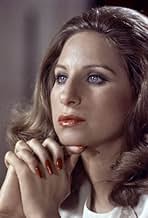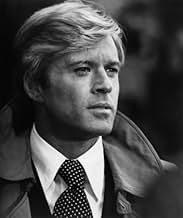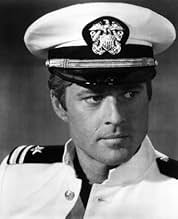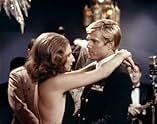द्वितीय विश्व युद्ध के दौरान मैककार्थीवाद, एक व्यास विरोधी युगल केवल यह पता लगाने के लिए एक साथ आते हैं कि वास्तविक दोस्ती और शारीरिक आकर्षण मौलिक सामाजिक मान्यताओं को दूर करने के लिए पर्याप... सभी पढ़ेंद्वितीय विश्व युद्ध के दौरान मैककार्थीवाद, एक व्यास विरोधी युगल केवल यह पता लगाने के लिए एक साथ आते हैं कि वास्तविक दोस्ती और शारीरिक आकर्षण मौलिक सामाजिक मान्यताओं को दूर करने के लिए पर्याप्त नहीं है।द्वितीय विश्व युद्ध के दौरान मैककार्थीवाद, एक व्यास विरोधी युगल केवल यह पता लगाने के लिए एक साथ आते हैं कि वास्तविक दोस्ती और शारीरिक आकर्षण मौलिक सामाजिक मान्यताओं को दूर करने के लिए पर्याप्त नहीं है।
- 2 ऑस्कर जीते
- 6 जीत और कुल 8 नामांकन
फ़ीचर्ड समीक्षाएं
Had to see this one again after years had elapsed between viewings, and the hair brushed from the face ending still gets to me. Weep weep, boo hoo. Speaking of hair, Babs looks better with her hair curly here, it always seems stiff flattened out. I still can't figure out if Hubbel was challenged by Katie or if he fell for her because he knew she loved him deeply, even if their relationship was based more on her attraction to him than his to hers. I never thought he truly felt comfortable with her. Because she was so "serious" all the time, as he tried to tell her. Romance was bound to fail because he could never think about other people the way she did and she in turn could never relax. The public confrontation during the communist witch hunt is the last straw and eventually leads us to the sidewalks of New York, where Katie's hair is curly again and Hubbel comments that she must have lost her iron. A truly moving romance with some stretches of dullness here and there but never at the expense of character. Both stars look great, with Streisand definitely robbed at Oscar time.
I can remember seeing THE WAY WE WERE when I was in high school and being surprised by how much I had enjoyed it. Romances were never really my thing, but I had always enjoyed the work of Robert Redford, so I decided to give it a try. I was floored by the power and beauty of film! My initial reactions to the film were, once again, how natural and charismatic Redford is as the classic example of the college golden boy, who feels slightly trapped. After the credits began to roll, I knew right then that I had seen something special, something that would pass the test of time. I assume others felt the same way, the film went on to become an international blockbuster and the top grosser of the year.
Years later, I watched THE WAY WE WERE again. Now older, I had a new perspective on the film, and to be completely honest, I enjoyed it even more! While I still think Redford is great in this film, I discovered that it is actually Barbra Streisand who gives the better performance. As the political activist Katie, Streisand has one her best roles since Fanny Brice in the original FUNNY GIRL and she provides a show-stopping performance. She displays both strength and vulnerability, she is at once both scorned and innocent. Her's is one of the best performances of the 70's.
The final verdict: THE WAY WE WERE stands the test of time as one of the best films of it's kind. Watch this film for the most moving finale in film history, for the knock out performance from Streisand, for the long-lasting chemistry between Redford and Streisand, and for one of the most famous and touching love stories of this century.
Out of 10, I'd rate THE WAY WE WERE a solid 10!
Years later, I watched THE WAY WE WERE again. Now older, I had a new perspective on the film, and to be completely honest, I enjoyed it even more! While I still think Redford is great in this film, I discovered that it is actually Barbra Streisand who gives the better performance. As the political activist Katie, Streisand has one her best roles since Fanny Brice in the original FUNNY GIRL and she provides a show-stopping performance. She displays both strength and vulnerability, she is at once both scorned and innocent. Her's is one of the best performances of the 70's.
The final verdict: THE WAY WE WERE stands the test of time as one of the best films of it's kind. Watch this film for the most moving finale in film history, for the knock out performance from Streisand, for the long-lasting chemistry between Redford and Streisand, and for one of the most famous and touching love stories of this century.
Out of 10, I'd rate THE WAY WE WERE a solid 10!
Barbra Streisand and Robert Redford look wonderful in this great story of doomed love. Character development (or arc) is supposed to be one of the basic elements of a good screenplay; but the whole point of Sydney Pollack's 1973 movie is that neither Katie Moroski nor Hubbell Gardner changes. She remains the serious-minded Jewish left-wing activist, and he the easy-going, politically uncommitted WASP, they are when they first meet in college in 1937. Fascinated with each other precisely because they are such opposites, they have an affair, marry and have a baby; but their inability to compromise - or in his case to stop compromising - leads to break-up.
The main action spans the eventful decade from the Spanish Civil War and New Deal, through WWII, to the McCarthy era, by which time Katie and Hubbell have moved from New York to Hollywood, where he is a screenwriter. Though melodramatic and sketchy, the political dimension of the story should not be underestimated; this is one of the very rare American movies in which a communist is treated sympathetically. Presumably much of this side of the scenario stemmed from the personal experience of writer Arthur Laurents, who was the same age as his protagonists, and who had McCarthy-related problems.
Both stars are perfect for their roles; we can see what they see in each other; and we desperately want it to work for them, though we know it won't! Notable in support are Bradford Dillman, Lois Chiles, and James Woods. The theme song, emotionally delivered by Streisand as only she can, is beautiful, but the relevance of its nostalgic lyric to this clear-eyed movie is doubtful.
The main action spans the eventful decade from the Spanish Civil War and New Deal, through WWII, to the McCarthy era, by which time Katie and Hubbell have moved from New York to Hollywood, where he is a screenwriter. Though melodramatic and sketchy, the political dimension of the story should not be underestimated; this is one of the very rare American movies in which a communist is treated sympathetically. Presumably much of this side of the scenario stemmed from the personal experience of writer Arthur Laurents, who was the same age as his protagonists, and who had McCarthy-related problems.
Both stars are perfect for their roles; we can see what they see in each other; and we desperately want it to work for them, though we know it won't! Notable in support are Bradford Dillman, Lois Chiles, and James Woods. The theme song, emotionally delivered by Streisand as only she can, is beautiful, but the relevance of its nostalgic lyric to this clear-eyed movie is doubtful.
Actually, "The Way We Were" is both, and happily so. It's a classy romantic period drama about a 1940s wallflower in New York who blooms in love with her ex-jock boyfriend (an old acquaintance from their college days), and the movie overflows with star-power. None of today's celebrities have the kind of chemistry Barbra Streisand and Robert Redford bring to the screen, and Streisand in particular is so deeply into this character that the herky-jerky editing and breathless writing don't harm her or get in the way (the faults can easily be overlooked). When writer Redford adapts his novel into a screenplay and the couple marries and moves to Hollywood in the McCarthy-Blacklist era, her passion for politics gets them both in hot water; that's where this script hits a snag, with increasingly melodramatic plotting (Redford's affair with a former flame) and confusion in the character motivations (this primarily due to hasty, eleventh-hour editing). Still, it is a handsomely-produced movie with a great tearjerker ending and two fine stars who plow right through the nonsense and bumpy continuity. They transcend the make-believe surroundings, turning the picture into something really special, something to remember. ***1/2 from ****
"The Way We Were" released in 1973, stars two of the biggest names in show biz then and now, Barbra Streisand and Robert Redford. The story is basically a weepy melodrama, but who cares? Both of these superstars are the reason to watch. At first, we cannot imagine what they see in one another. They meet in college, circa 1937 -- Katie (Streisand) is a wallflower political activist, Hubble (Redford) is the Golden Boy track star. Yes, both were too old to play college students, so it is obvious the director surrounded them with people their own age, with some decent supporting actors like Lois Chiles and a younger James Woods. The two are reunited by World War II, Redford is in the military but also part of the uppity "Beekman Street" crowd, Streisand is a liberal who is nuts about FDR and working on various political causes. The unlikely twosome fall in love, get married, and do not always have an easy time. Redford doesn't mind his wife's political activity, but he is bored by politics and cannot relate to them. The turbulent 1950's hit, Redford is a writer in "Red Scare" Hollywood who takes the easy way out; Streisand believes people should always stand up for their principles, no matter the cost. Sydney Pollack directed this fine film, and had to convince his friend Redford to take on the part of Hubble Gardner; Redford was reluctant, and it is easy to see why. His character, while a decent guy at heart, is also shallow, somewhat superficial, and doesn't take life seriously. The film obviously exploits Redford's golden boy looks, something he always detested. Streisand's part is obviously the more interesting one, as the part was exclusively written for her. And while her character may not fit in on "Beekman Street," she looks fabulous here. All in all, this is one of the finest romances to come out of the 1970's that also has intelligence and class.
क्या आपको पता है
- ट्रिवियाFilmed amid the ongoing Watergate political scandal, Robert Redford initially wanted the film to focus on the blacklisting of actors and writers during the McCarthy era. He was unhappy with cuts made to the film following a preview. "I think we'd both have preferred a more political Dalton Trumbo-type script," Redford recalled, "but finally Sydney came down on the side of the love story. He said, 'This is first and foremost a love affair,' and we conceded that. We trusted his instincts, and he was right."
- गूफ़When the radio announcer refers to the time of Franklin Roosevelt's death, he says it occurred at 5:45 in the morning. President Roosevelt died in the early afternoon.
- भाव
Hubbell Gardner: People are more important than their principles.
Katie Morosky Gardner: People ARE their principles.
- कनेक्शनFeatured in Film Extra: Sydney Pollock (1973)
- साउंडट्रैकThe Way We Were
Composed by Marvin Hamlisch
Lyrics by Marilyn Bergman and Alan Bergman
Sung by Barbra Streisand before the opening credits and during the end credits.
Music played often in the score
टॉप पसंद
रेटिंग देने के लिए साइन-इन करें और वैयक्तिकृत सुझावों के लिए वॉचलिस्ट करें
- How long is The Way We Were?Alexa द्वारा संचालित
- What is 'The Way We Were' about?
- Is 'The Way We Were' based on a book?
- When does the story take place?
विवरण
- रिलीज़ की तारीख़
- कंट्री ऑफ़ ओरिजिन
- भाषाएं
- इस रूप में भी जाना जाता है
- Cherie Bitter
- फ़िल्माने की जगहें
- उत्पादन कंपनियां
- IMDbPro पर और कंपनी क्रेडिट देखें
बॉक्स ऑफ़िस
- बजट
- $50,00,000(अनुमानित)
- US और कनाडा में सकल
- $4,50,00,000
- दुनिया भर में सकल
- $4,50,00,493
इस पेज में योगदान दें
किसी बदलाव का सुझाव दें या अनुपलब्ध कॉन्टेंट जोड़ें











































